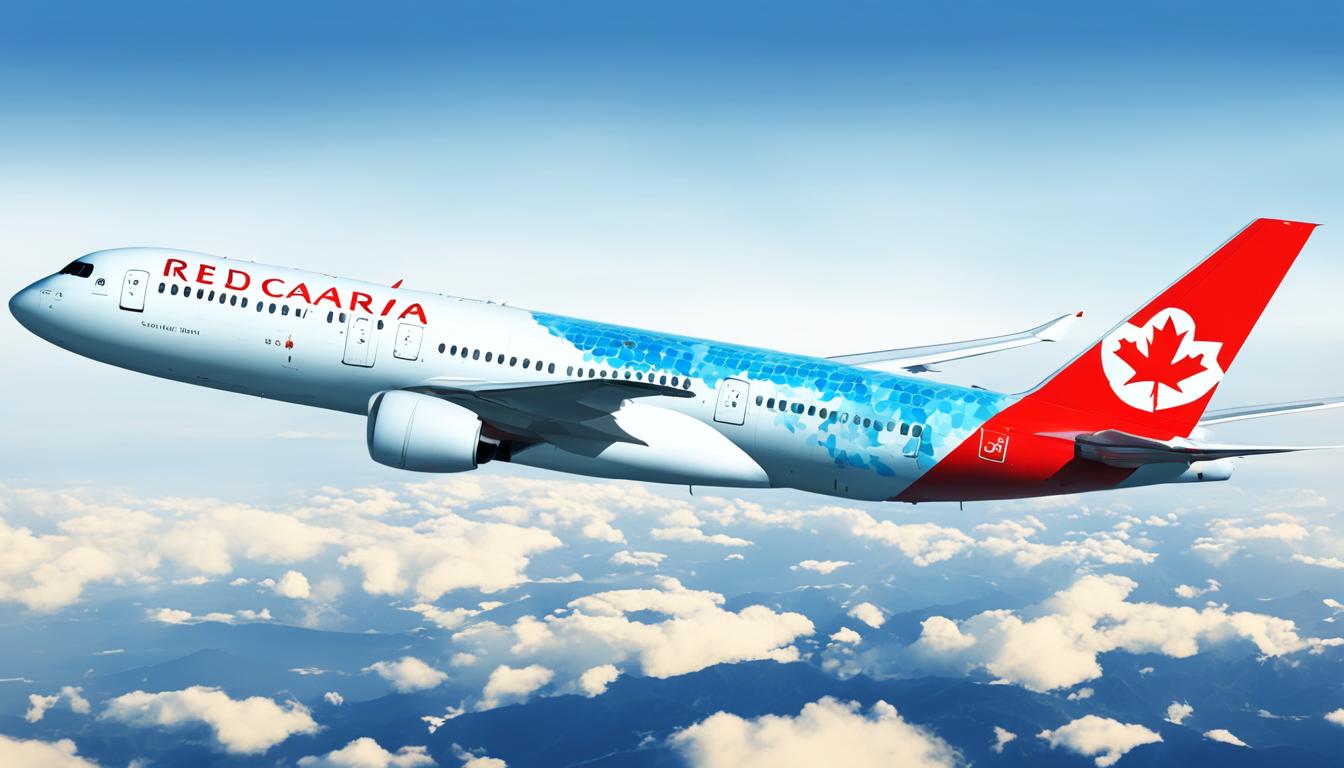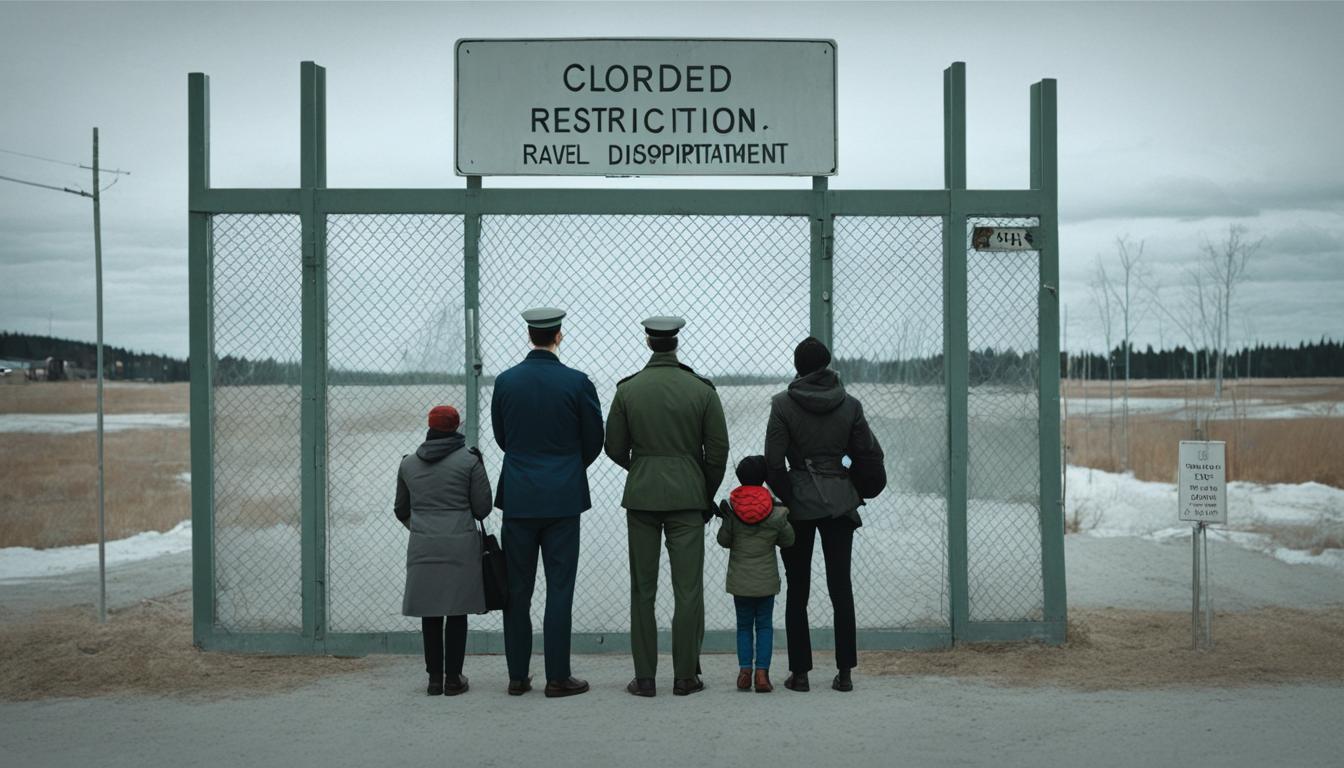Are you planning a trip to Canada? Before you pack your bags and book your tickets, it’s essential to understand the discretionary travel rules in Canada. The Canadian government has implemented air travel and border measures to prioritize the health and safety of its citizens, which includes restrictions on optional and discretionary international travel.
Discretionary travel refers to non-essential travel, which is currently prohibited for foreign nationals who do not meet the travel restriction exemptions outlined in the Orders in Council (OIC). However, there are exceptions to these restrictions.
Foreign nationals who are fully vaccinated, immediate family members of Canadian citizens and permanent residents, and extended family members may be exempt from the non-essential travel restrictions.
To ensure a smooth journey, it’s important to familiarize yourself with the discretionary travel guidelines, restrictions, and requirements set by the Canadian government. Understanding these rules will help you plan your trip accordingly and avoid any unnecessary delays or complications.
Whether you’re a tourist or visiting family and friends, knowing the discretionary travel rules in Canada is crucial. Stay informed and stay safe during your trip. Check out our discretionary travel Canada checklist to ensure you have everything in order before you embark on your Canadian adventure.
Travel Restrictions and Exemptions for Fully Vaccinated Foreign Nationals
As the Canadian government continues to prioritize the health and safety of its citizens, certain travel restrictions remain in place. However, fully vaccinated foreign nationals have been granted discretionary travel exemptions, allowing them to visit Canada for non-discretionary or non-optional purposes.
What does this mean for fully vaccinated travelers? If you are a foreign national who has received a Health Canada-approved vaccine and can provide proof of full vaccination, you are exempt from the non-essential travel restrictions. This exemption applies to individuals residing in the United States as well, including U.S. citizens and permanent residents.
This travel exemption recognizes the importance of vaccination in mitigating the risk of COVID-19 transmission and allows fully vaccinated foreign nationals to travel to Canada with confidence.
Requirements for Fully Vaccinated Travelers:
- Proof of full vaccination with a Health Canada-approved vaccine
- Maintaining compliance with all public health measures, including testing requirements
- Adherence to any additional entry requirements imposed by the destination province or territory
It’s important to note that even though fully vaccinated foreign nationals are exempt from the non-essential travel restrictions, they must still abide by public health guidelines and any applicable provincial or territorial travel regulations.
Benefits of the Travel Exemption:
The discretionary travel exemption for fully vaccinated foreign nationals provides numerous benefits, including:
- An opportunity to reunite with loved ones in Canada
- The ability to travel for essential business or personal reasons
- Exploring the beautiful landscapes and diverse cultures of Canada
Travel Restrictions and Exemptions for Family Members
Immediate family members and extended family members of Canadian citizens, permanent residents, or persons registered as Indians under the Indian Act may qualify for exemptions from non-essential travel restrictions. These exemptions apply to family members who intend to stay in Canada for 15 days or more and are traveling with or to be with their Canadian family member.
Immediate family members, such as spouses, children, and parents, can travel to Canada without being subject to non-essential travel restrictions if they meet the eligibility requirements. This includes immediate family members of temporary residents in Canada, who are required to provide evidence of non-optional or non-discretionary travel.
In addition to immediate family members, extended family members may also qualify for exemption from travel restrictions if they are traveling with or to be with their Canadian family member for 15 days or more. Extended family members include grandparents, siblings, grandchildren, and other relatives.
Evidence of Non-Optional or Non-Discretionary Travel
Immediate family members of temporary residents in Canada must provide evidence to prove that their travel is non-optional or non-discretionary. Examples of evidence may include:
- A letter from the employer stating the necessity of travel
- Documentation of medical appointments or treatment in Canada
- Proof of legal or immigration proceedings
- Proof of attending a family event or ceremony
It is essential for immediate family members to carry the necessary documents with them while traveling to Canada to avoid any issues at the border.
Changes to Border Restrictions and Future Outlook
The Canadian border, which had been closed to non-essential travel since March 2020 due to the COVID-19 pandemic, has finally reopened. Starting from October 1st, 2022, all visitors can enter Canada, regardless of their vaccination status. The Government of Canada has officially lifted all COVID-related border restrictions, signifying a significant step towards a return to normalcy.
However, it’s important to note that while the border has reopened, travelers are still required to meet certain requirements. These include having a valid passport or enhanced driver’s license. Additionally, in some cases, individuals with a criminal record may need to obtain special permission before entering Canada.
The government continues to prioritize the health and safety of its citizens and visitors and will closely monitor the situation to make any necessary adjustments. As the world navigates through the ongoing pandemic, understanding and complying with the current Canada COVID-19 measures remains crucial for a smooth travel experience.











